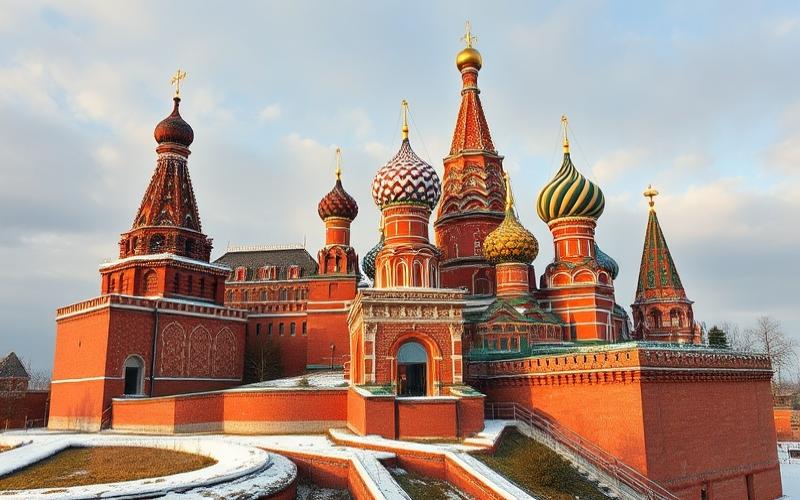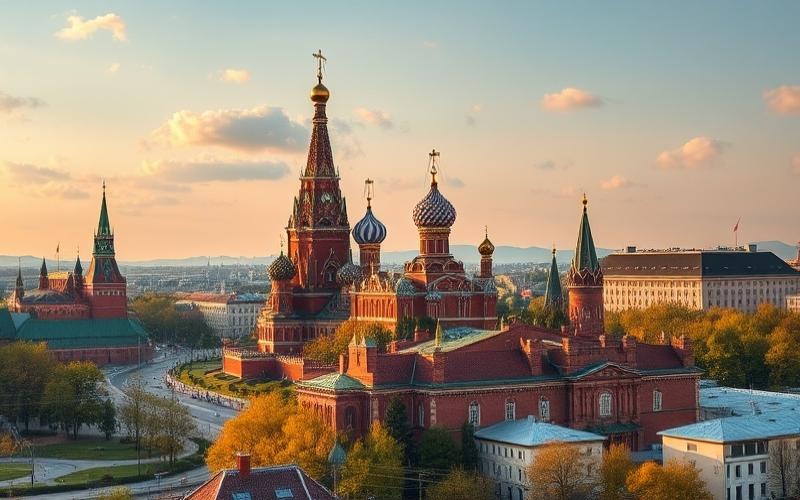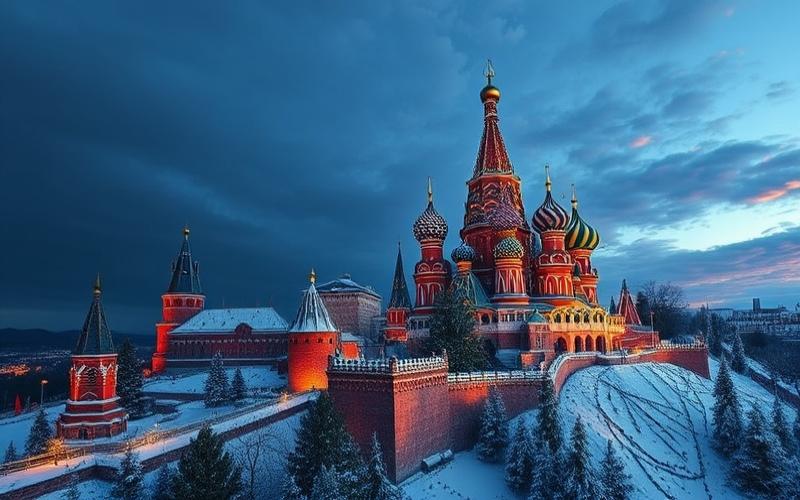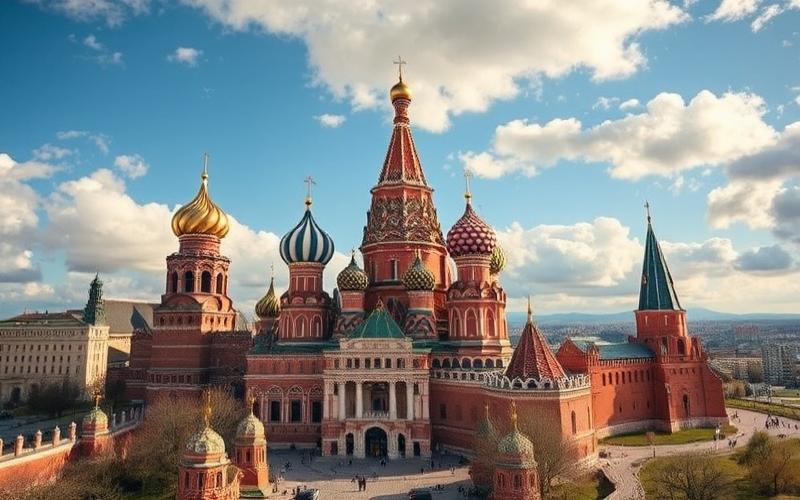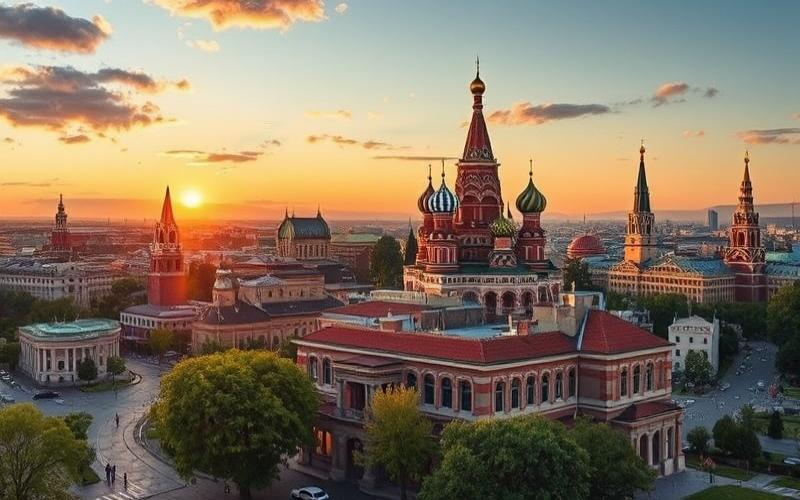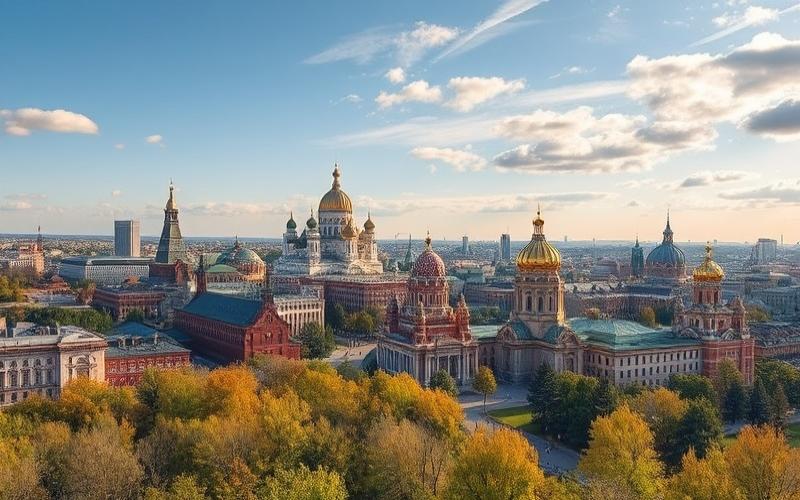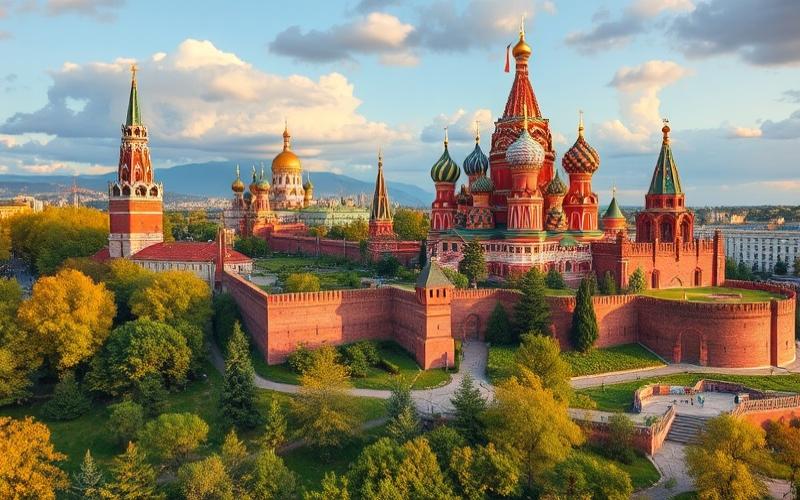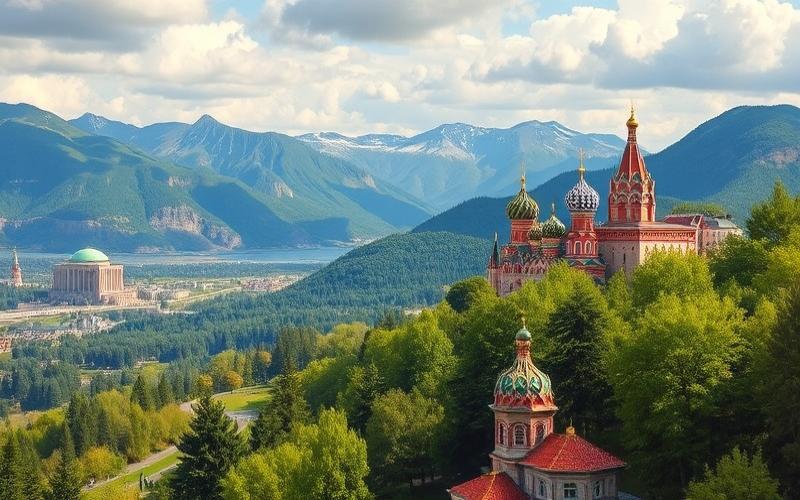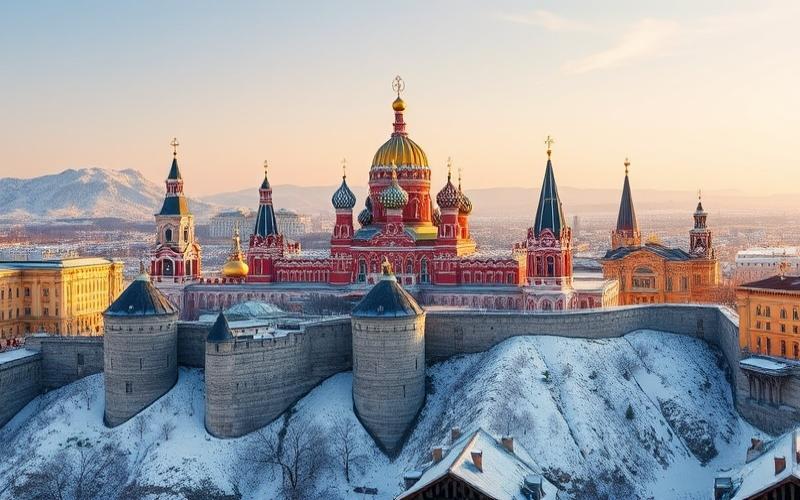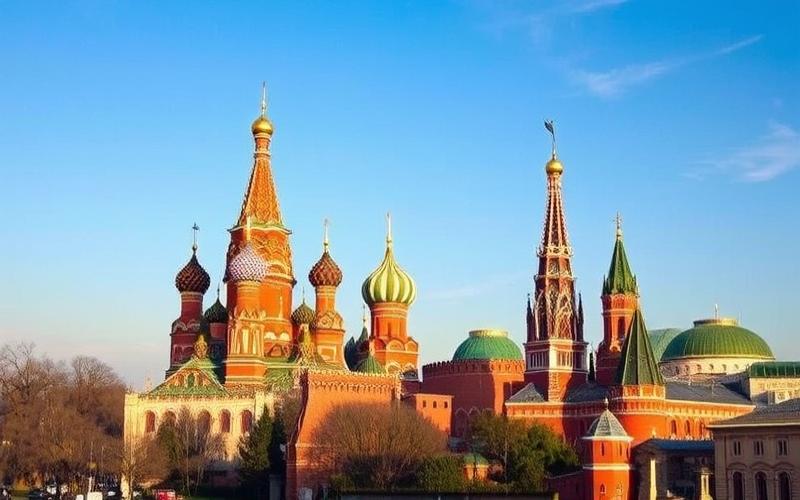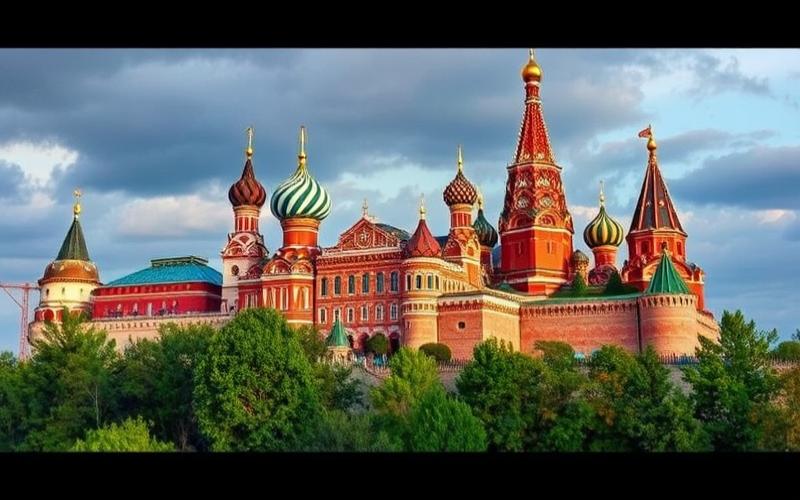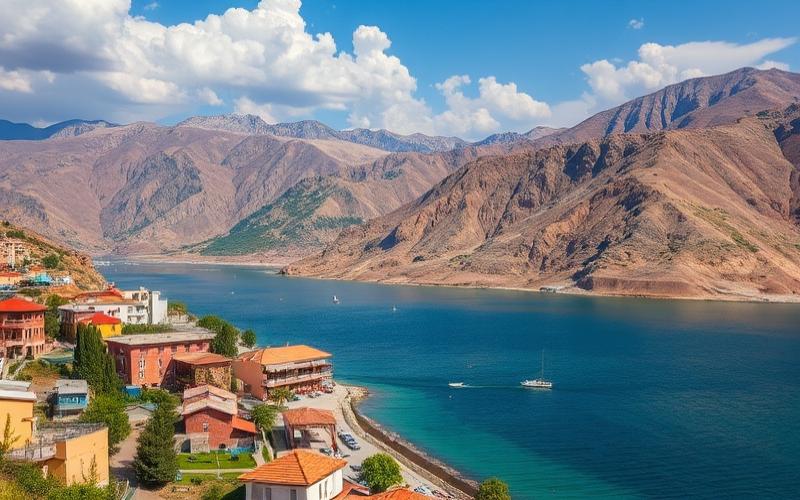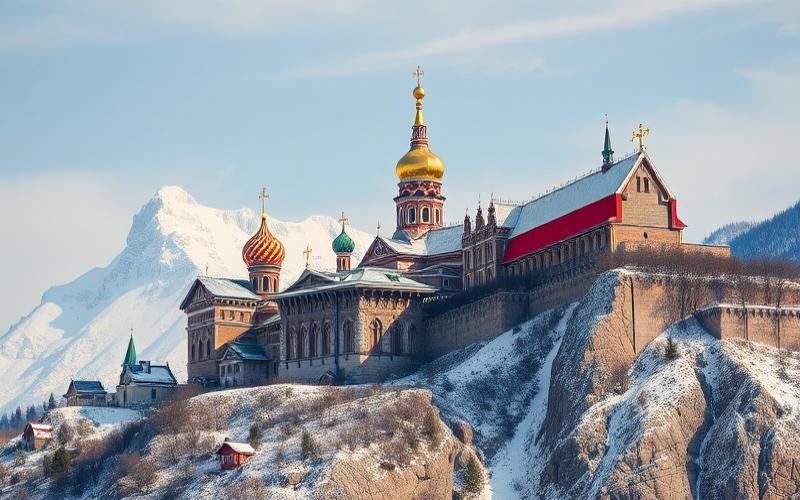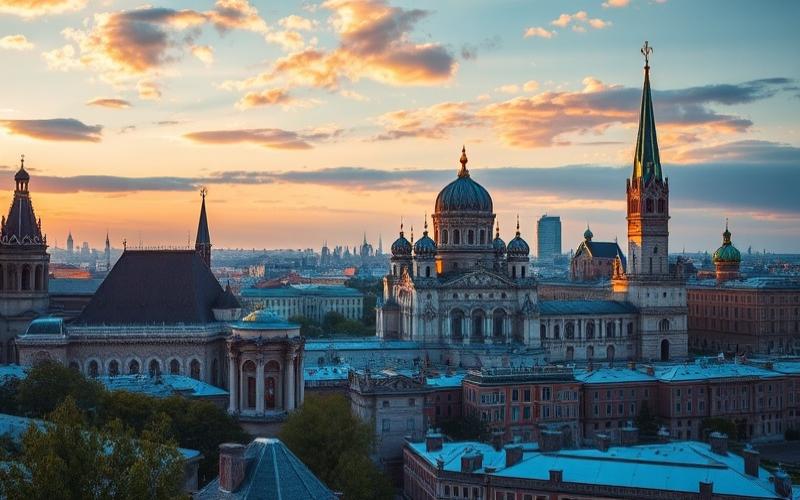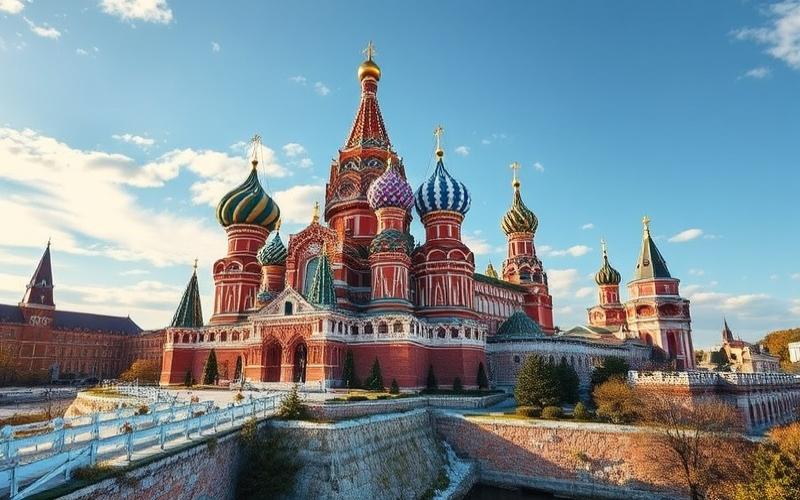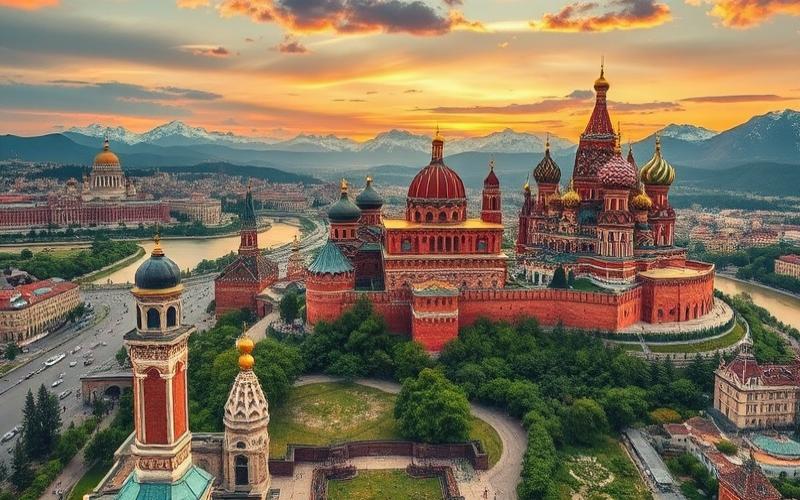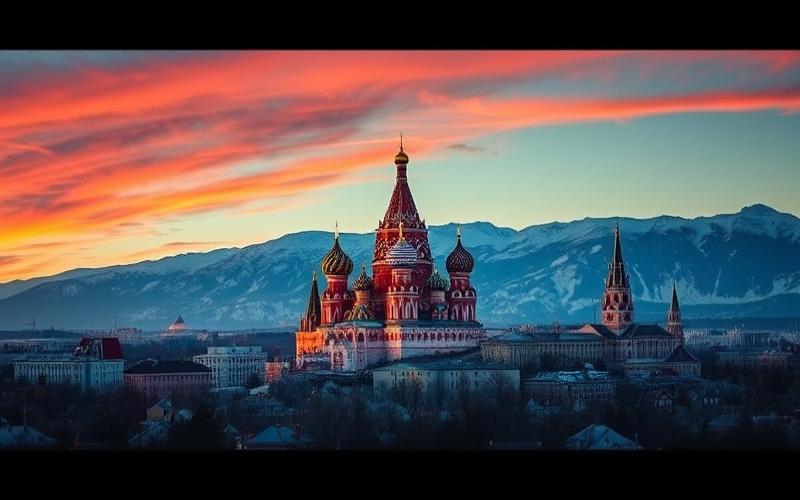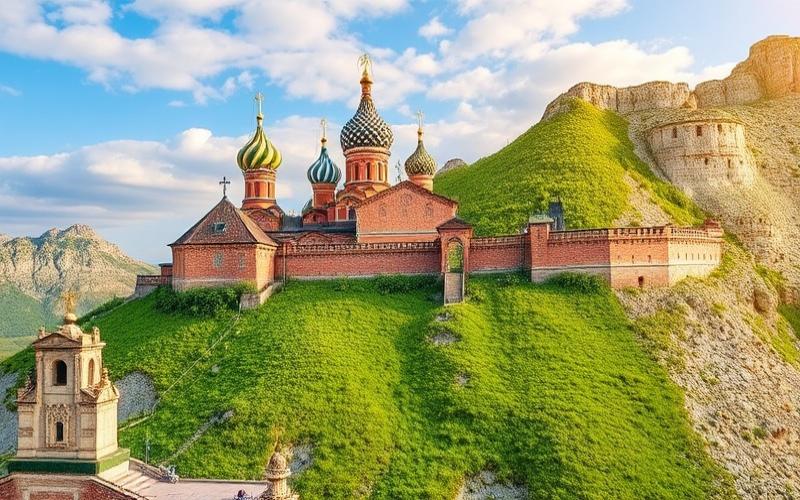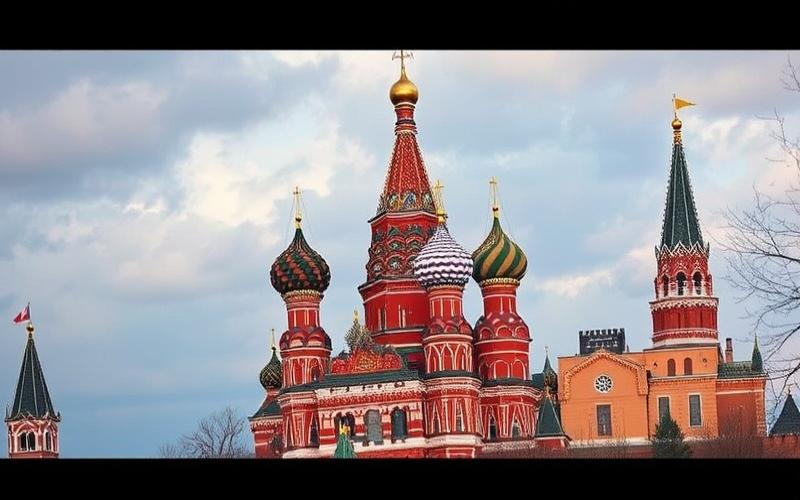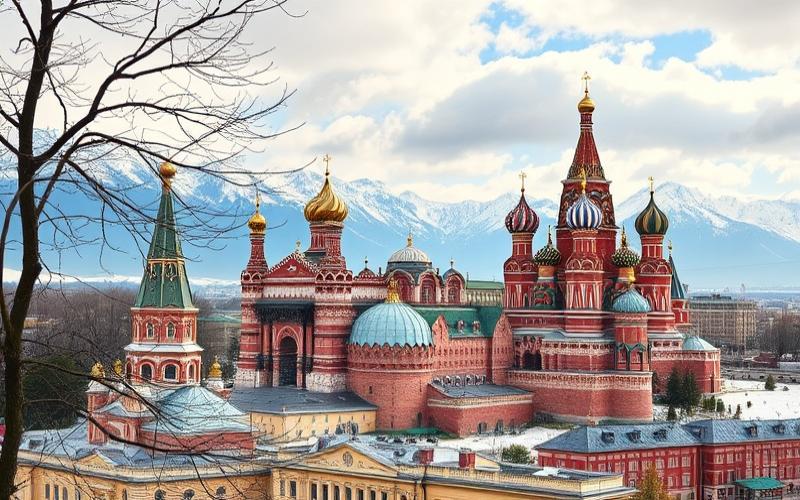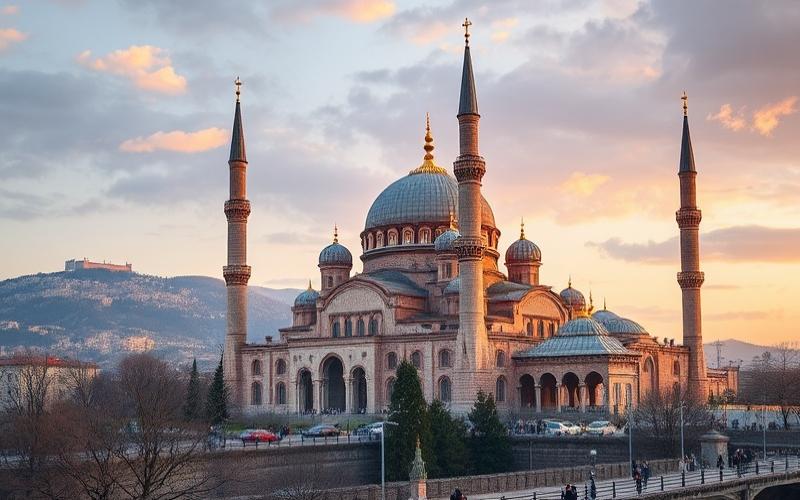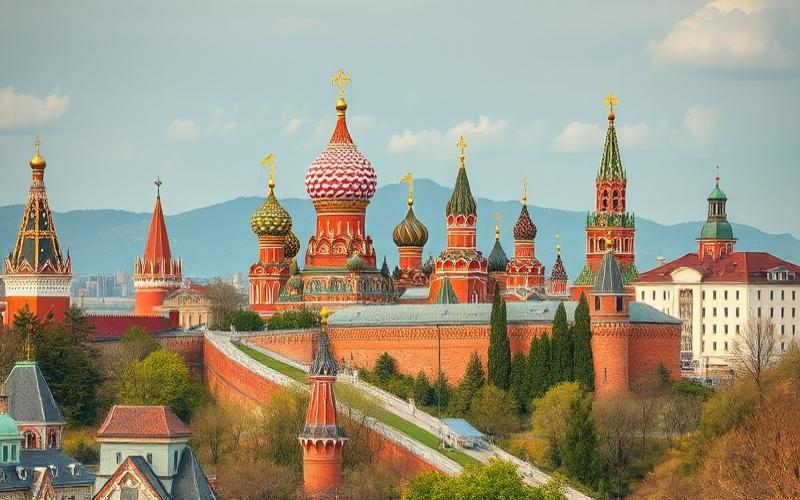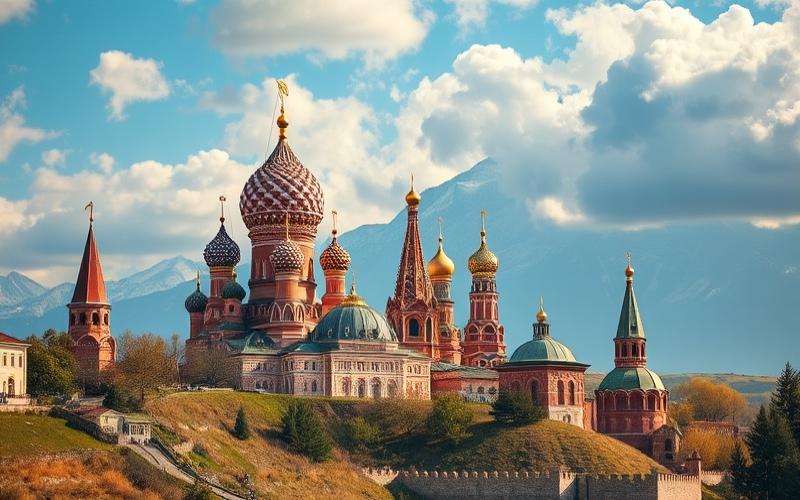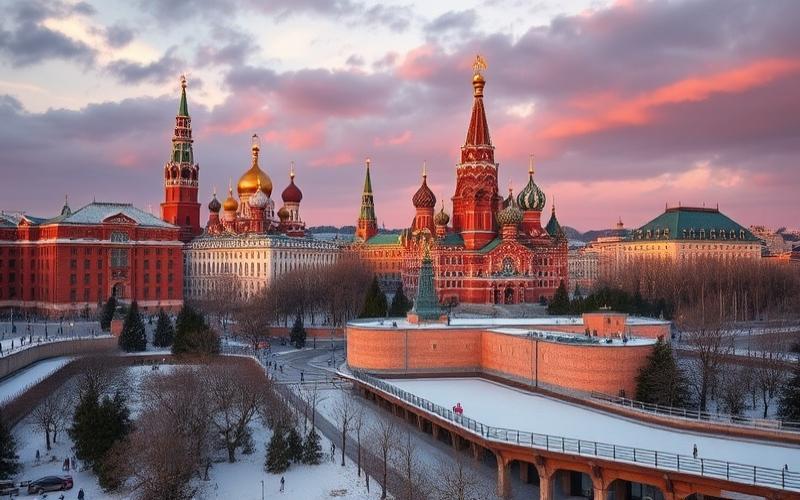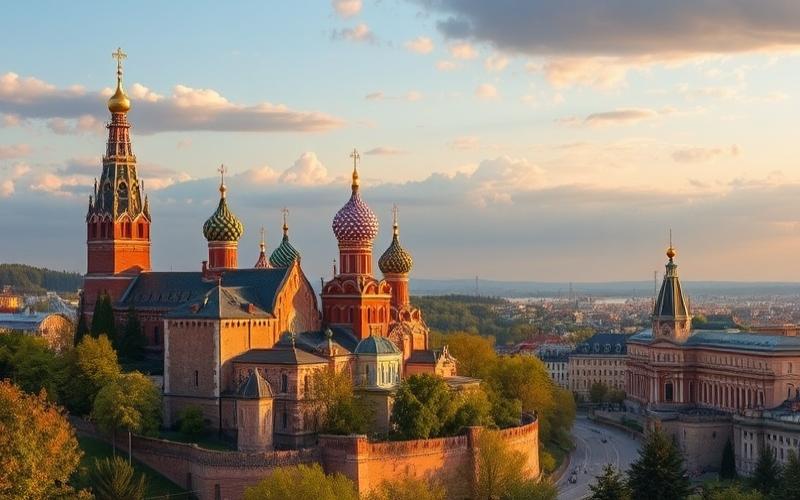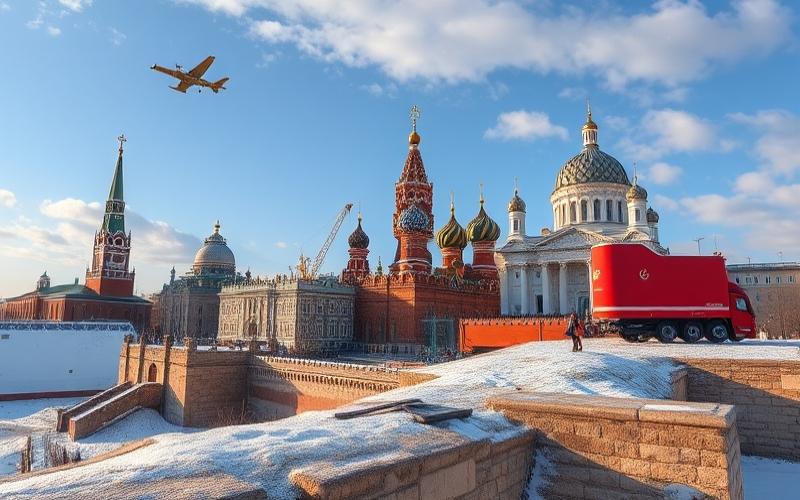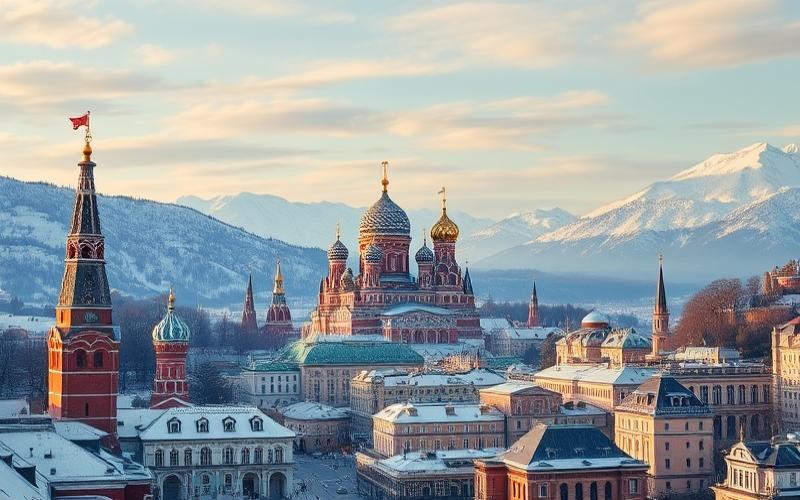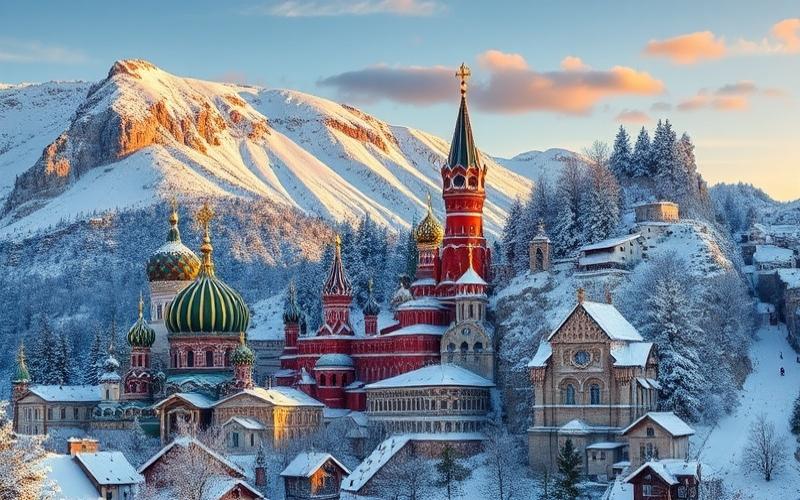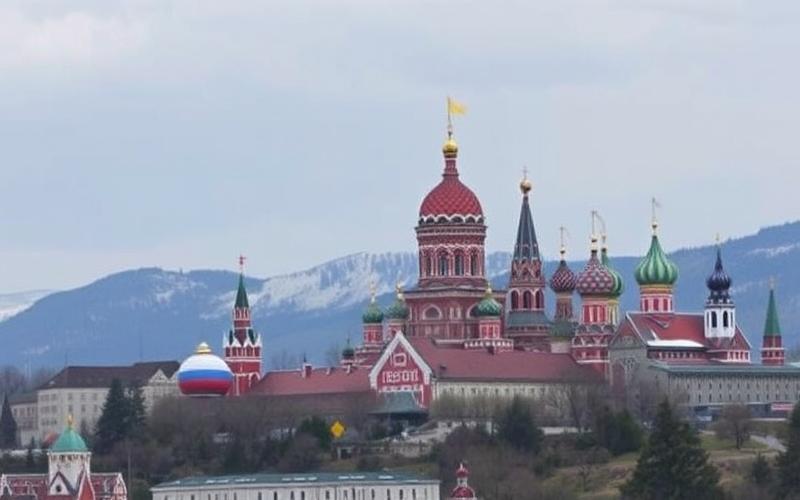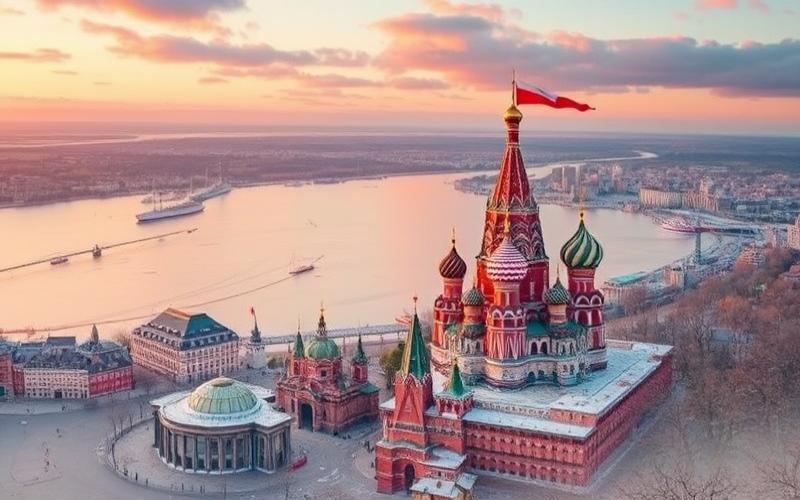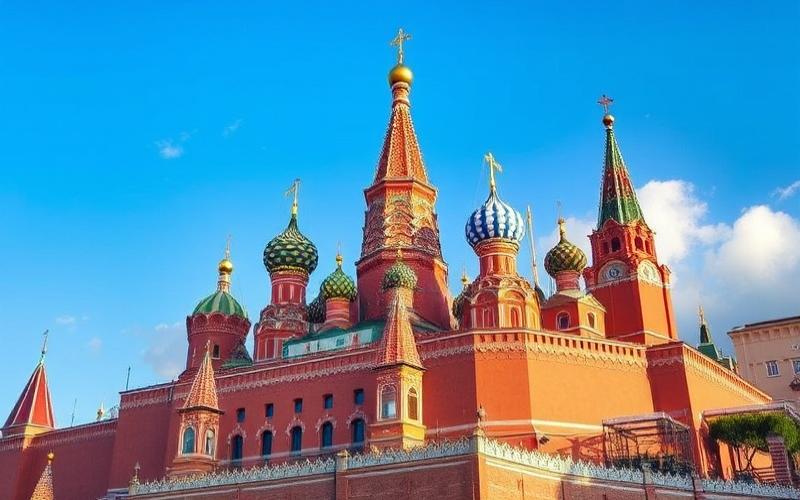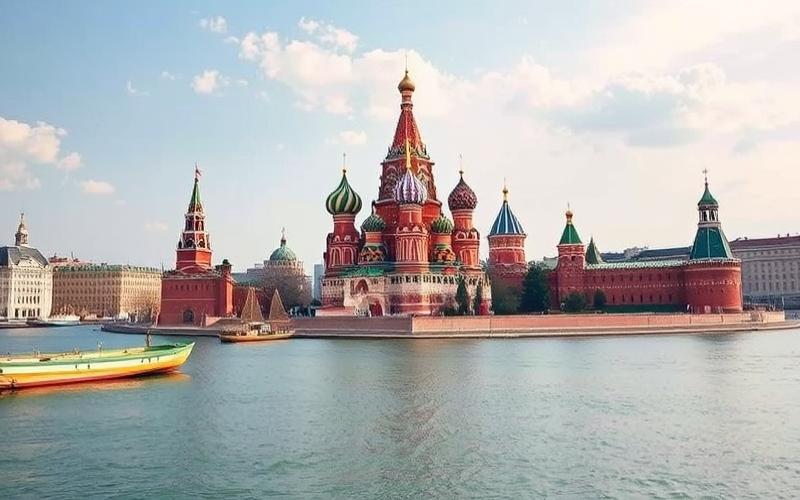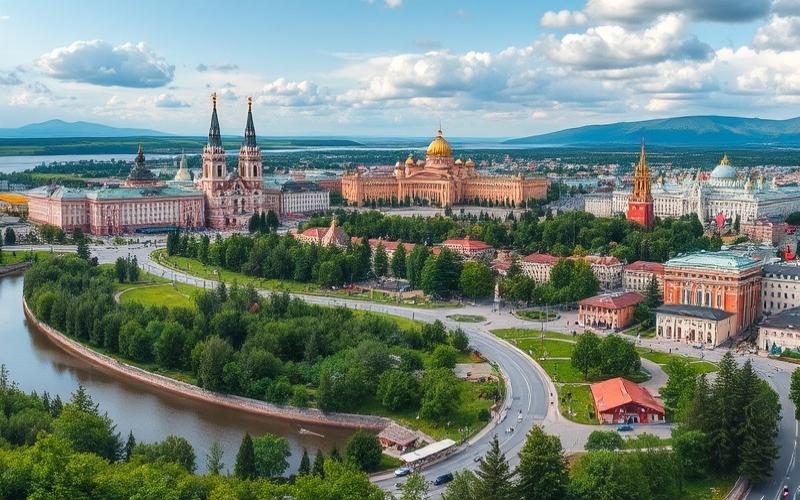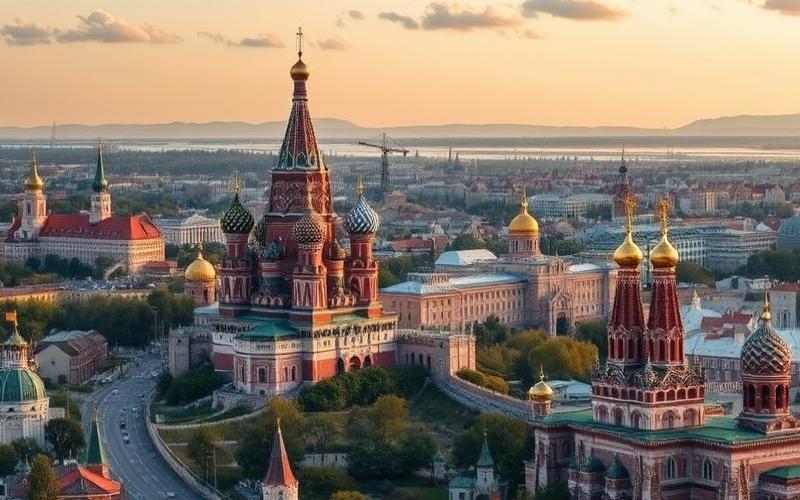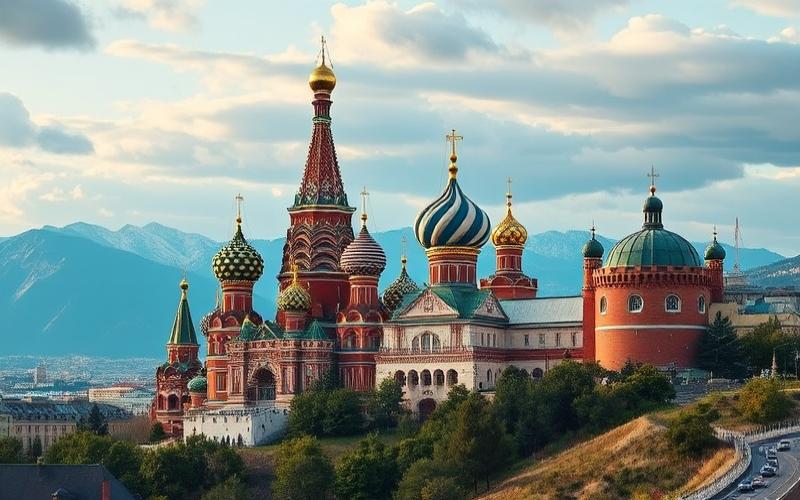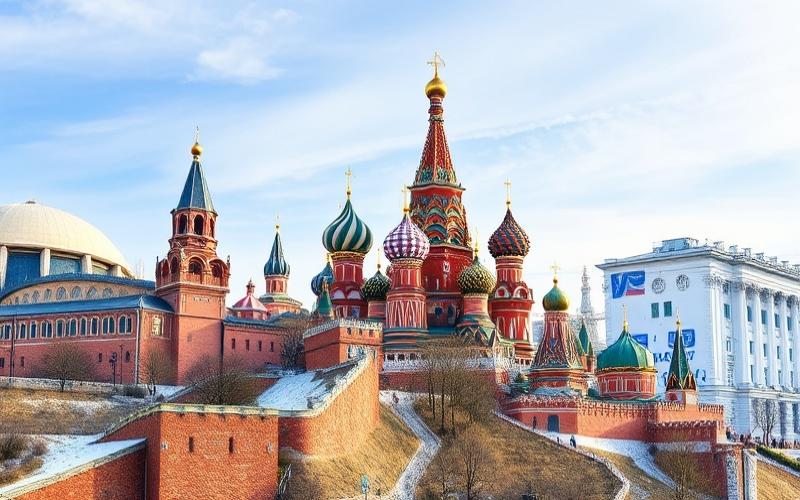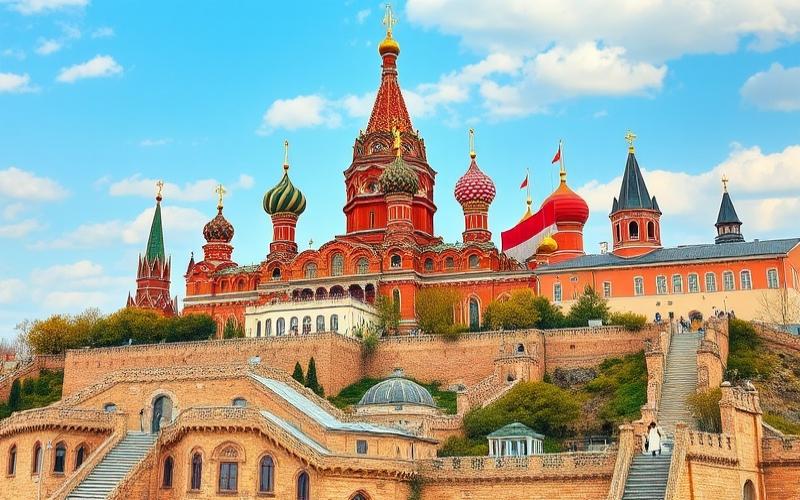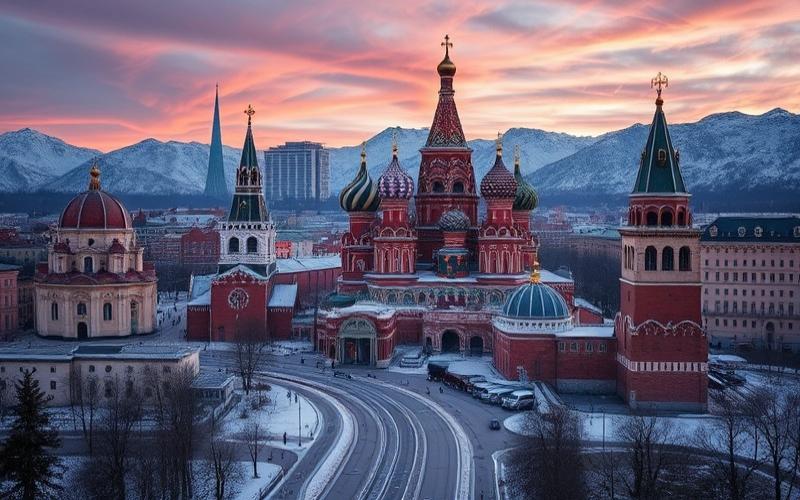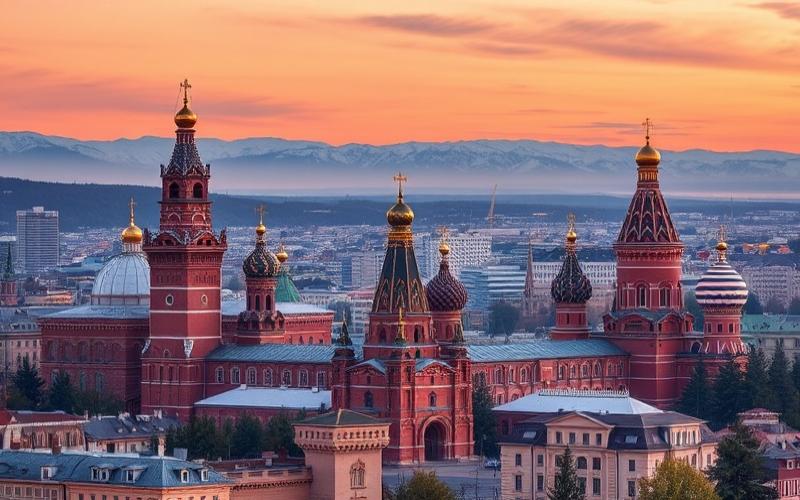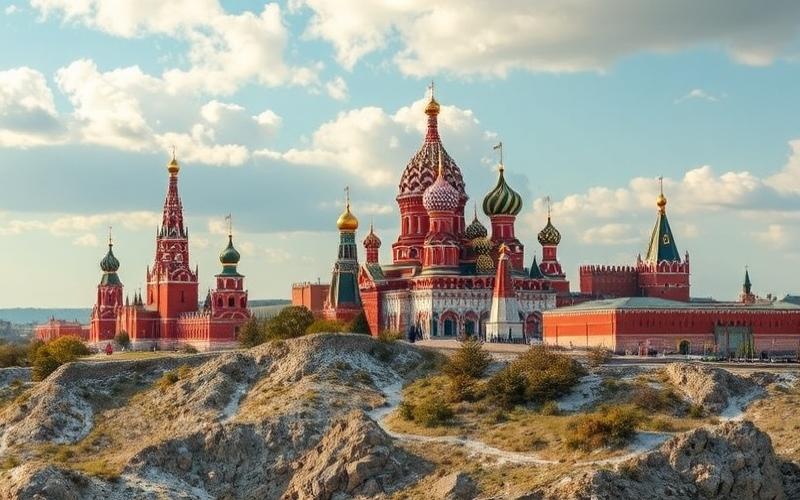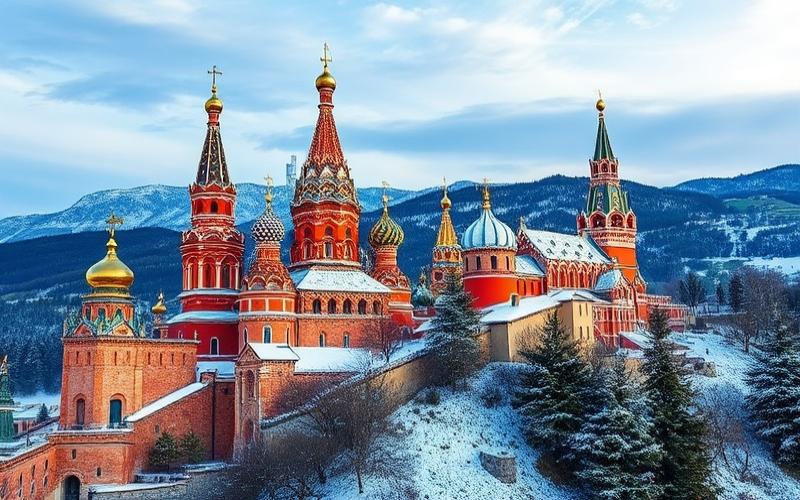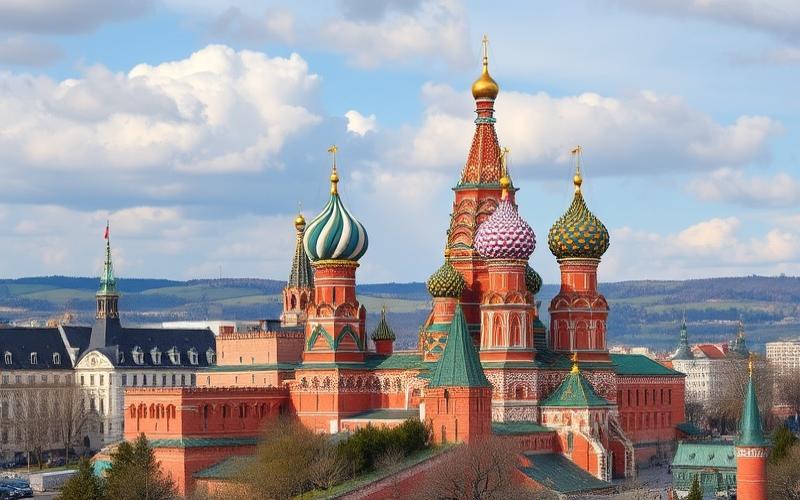
 Published on and written by Cyril Jarnias
Published on and written by Cyril Jarnias
Exploring Russia’s wonders as a tourist destination is an adventure that attracts more travelers each year. For those wishing to immerse themselves in this experience by offering their own tourist accommodation, it’s essential to familiarize themselves with current regulations.
The Russian legal landscape is complex and constantly evolving, requiring potential hosts to stay informed and ensure their operations comply with local legal and administrative standards.
This article aims to guide future hosts through the various necessary steps, from mandatory registrations to specific safety requirements, to ensure their establishment not only complies with laws but also provides an unforgettable experience for visitors.
Essential Procedures for Tourist Accommodation in Russia
Overview of administrative and legal procedures for establishing tourist accommodation in Russia
Main Procedures:
- Choosing the legal form of the business (sole proprietorship, limited liability company, etc.)
- Official registration with relevant local authorities (Federal Registration Service, municipal administration)
- Obtaining a tourism operation license for certain types of accommodations (hotels, hostels), mandatory for offering commercial lodging services
Required Licenses and Permits:
- Hotel business license issued by local or regional administration, particularly for hotels and hostels
- Compliance permit for sanitary and safety standards (Federal Service for Surveillance of Consumer Rights Protection – Rospotrebnadzor)
- Fire safety compliance certificate (Federal Service for Environmental, Technological and Nuclear Supervision – Rostekhnadzor)
| Accommodation Type | Mandatory License | Specific Permits | Applicable Standards |
|---|---|---|---|
| Hotel | Yes | Sanitary, fire | Classification, hygiene, safety |
| Hostel | Yes | Sanitary, fire | Capacity, hygiene, safety |
| Short-term rental | No (if individual) | Local registration | Occupancy limits, neighborhood respect |
Safety and Hygiene Standards:
- Compliance with hygiene and cleanliness standards defined by Rospotrebnadzor
- Fire safety requirements: emergency exits, fire extinguishers, evacuation plans
- Limitation of occupant numbers based on surface area and establishment type
Registration Procedures:
- Establishment registration with local Ministry of Internal Affairs (MVD) office within 7 business days of starting operations
- Submission of notification form and supporting documents (registration extract, premises layout, compliance certificates)
- For each foreign client, the host must file arrival declaration with migration authorities within 72 hours
Tax Obligations:
- Registration with federal tax administration (Federal Tax Service)
- Payment of VAT (if applicable), profit tax and local taxes
- Maintaining accounting records compliant with Russian legislation
Specific Regulations by Accommodation Type:
- Hotels: mandatory classification according to official criteria, compliance with international or local standards
- Hostels: maximum capacity, strict safety and hygiene rules
- Short-term rentals: prohibition of disturbances, tenant number limitations, sometimes requiring municipal authorization
Official Resources and Useful Contacts:
- Ministry of Economic Development of the Russian Federation
- Federal Service for Surveillance of Consumer Rights Protection (Rospotrebnadzor)
- Federal Registration Service (Rosreestr)
- Relevant municipal or departmental administration
- Official website of the Ministry of Foreign Affairs for foreigner legislation
Important Notes:
- Registration of foreign client stays is mandatory and the establishment’s responsibility.
- Non-compliance with obligations can lead to administrative sanctions, fines, and business prohibition.
For any project, it’s strongly advised to consult a local lawyer specialized in the tourism sector and contact local administrations for the exhaustive list of current procedures.
Good to Know:
Ensure you obtain the tourism operation license from Rostourism and comply with strict sanitary standards by referring to Rospotrebnadzor guidelines. Detailed information is available through the unified public services portal.
Regulations for Seasonal Rentals in Russia
Overview of national laws and guidelines
- Seasonal rentals in Russia have been subject to strengthened regulations since October 2024.
- Owners must modify the legal and tax status of their properties to offer short-term rentals.
- Installation of a fire safety system equivalent to that required for hotels is now mandatory in rental properties.
- Only ground-floor apartments with independent entrances, or top-floor units, can obtain seasonal rental authorization in major cities.
| Main Requirement | Description |
|---|---|
| Legal/tax status | Mandatory modification to declare short-term rental activity |
| Fire safety system | Installation of devices identical to those in hotels |
| Location conditions | Authorization only for ground-floor units with independent entrances or top floors |
Regional and Local Restrictions
- Measures are particularly strict in Moscow and St. Petersburg.
- Stated objective: protect traditional hotel sector and limit disturbances for residents.
- In St. Petersburg, up to 80% of seasonal rental supply could disappear; in Moscow, approximately 40%.
- Some regions or municipalities may impose additional regulations, particularly regarding maximum rental duration or number of properties allowed per owner.
Tax Obligations
- Income from seasonal rentals must be declared by the owner.
- Tax regime depends on chosen status (individual, sole proprietor, company).
- Non-compliance with income declaration exposes to financial sanctions and business prohibition.
- Many owners prefer contracts under 12 months to avoid cadastral registration, limiting tax visibility of their activity.
| Tax Status | Consequence |
|---|---|
| Contract > 12 months | Mandatory cadastral registration |
| Contract ≤ 11 months (practice) | No registration, frequent renewal |
| Non-declaration of income | Fines, rental prohibition |
Safety, Hygiene Rules and Minimum Standards
- Properties must comply with strict fire safety standards.
- Requirements comparable to those imposed on hotels: presence of alarms, fire extinguishers, emergency exits.
- Authorities may conduct inspections, particularly in case of complaints or suspected non-compliance.
- Compliance with hygiene standards is also required, though less detailed than for hotel establishments.
Recent Legislation
- New legislation, effective October 2024, has disrupted the market by strengthening requirements for seasonal rentals.
- Changes were decided by the Duma to protect hoteliers and limit competition from platforms like Airbnb.
- This reform has led to a drastic reduction in available supply, particularly in major cities.
Penalties for Non-Compliance
- Immediate rental prohibition for non-compliance with legal requirements.
- Significant financial penalties (fines), potentially including administrative closure of the business.
- Examples: owners continuing operations without status modification or required device installation have seen their listings removed from platforms and received rental bans.
Concrete Examples / Case Studies
| City | Estimated regulatory impact | Concrete illustration |
|---|---|---|
| St. Petersburg | 80% of supply eliminated | Many small landlords forced to stop |
| Moscow | 40% of supply eliminated | Competitive advantage for traditional hoteliers |
| Traditional market | Return of informal rentals (signs in train stations) | Elderly people regain visibility against platform competition |
Summary box:
Russian regulations on seasonal rentals now impose strict legal, tax, and technical obligations, severely limiting activity in major cities and causing massive reduction in short-term rental platform supply. Violators face severe penalties, up to rental prohibition.
Good to Know:
Owners must obtain permits for seasonal rentals and comply with current safety and hygiene standards, while severe penalties apply for non-compliance, as recently in Moscow where fines were imposed for lack of registration.
Guide for Expat Landlords in Russia
Main regulations to comply with for property rental in Russia by expats:
Rental Contract:
- Most contracts are fixed-term, often for maximum 11-month periods to avoid mandatory registration in the Russian cadastre (ЕГРН).
- Contracts exceeding 12 months must be registered in the cadastre, rarely offered to expats for administrative reasons.
- The contract must be signed in the owner’s presence and advised to be reviewed by a translator or legal expert if you don’t master Russian.
Registration with Russian Authorities:
- Mandatory registration with local migration service (ГУВМ МВД) within 7 days of moving in.
- This procedure must be completed with each change of residence.
- Registration is essential for visa and stay regularity.
- The owner or agency is responsible for providing contract copy and completing registration form (регистрация по месту пребывания).
Taxes and Fiscal Obligations:
- Rental income is subject to Russian tax, whether the owner is Russian or expat.
- Many owners avoid declaring this income, but this exposes them to risks during tax audits.
- There’s no specific tax for tenants to pay for registration, but there may be service or agency fees.
Procedures to Become Registered Landlord:
- Contract registration in cadastre for one-year or longer rentals.
- Declaration of rental income to tax administration.
- Compliance with hygiene and safety standards if property offered as short-term rental (touristic type).
Comparison Table: Short-term vs Long-term Rental
| Criterion | Short-term Rental | Long-term Rental |
|---|---|---|
| Contract Duration | ≤ 11 months, renewable | ≥ 12 months, often avoided |
| Cadastre Registration | Not required | Mandatory |
| Migration Registration | Mandatory | Mandatory |
| Taxation | Income to declare, increased scrutiny | Income to declare |
| Usage | Touristic, temporary stay | Primary residence |
Legal Implications for Expats:
- Expats not complying with registration procedures or exceeding authorized stay duration face severe penalties, including 5-year entry ban to Russian territory.
- For tourist rentals (Airbnb, nightly rentals), local rules may prohibit or restrict short-term rentals in certain residential buildings.
- Failure to declare rental income exposes owners to penalties.
- Have all documents reviewed by competent lawyer or translator.
- Keep all payment receipts, contracts and registration certificates.
- Prefer recognized platforms for housing search.
- Verify owner or agency reputation to avoid scams.
- Take photos of property condition at move-in and move-out.
- Demand written contract, even for short duration.
- Explicitly request owner to complete registration with authorities.
Resources and Useful Contacts:
- Local migration service (ГУВМ МВД)
- Your country’s embassy or consulate in Russia
- Recognized real estate platforms: CIAN, Domofond
- Lawyers specialized in Russian real estate law
- Expat associations or community forums for practical advice
In case of doubt, it’s strongly advised to consult a lawyer or expert specialized in Russian real estate law.
Good to Know:
Expat landlords must register with Russian authorities and comply with local short-term rental laws, with notable differences between long and short-term contracts that can influence tax obligations. To facilitate the process, consulting a local lawyer specialized in real estate law or contacting the Expat Association in Russia for tailored resources and advice is recommended.
Disclaimer: The information provided on this website is for informational purposes only and does not constitute financial, legal, or professional advice. We encourage you to consult qualified experts before making any investment, real estate, or expatriation decisions. Although we strive to maintain up-to-date and accurate information, we do not guarantee the completeness, accuracy, or timeliness of the proposed content. As investment and expatriation involve risks, we disclaim any liability for potential losses or damages arising from the use of this site. Your use of this site confirms your acceptance of these terms and your understanding of the associated risks.

